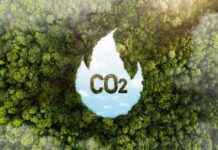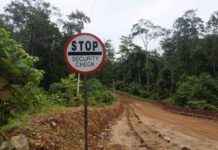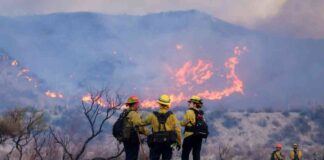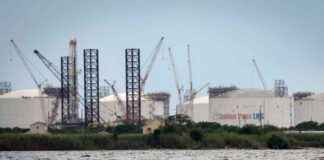US Approves Multi-Billion Loan for Mozambique Gas Plant
In recent news, the United States has given the green light to a $4.7-billion loan for a fossil gas plant project in Mozambique. This development has sparked controversy, with the project being labeled a potential “carbon bomb” due to environmental concerns and ongoing allegations of human rights violations.
US Export-Import Bank (EXIM), a government agency, has officially approved financial backing for the liquefied natural gas (LNG) initiative led by French energy giant TotalEnergies. This project is situated in Mozambique’s northern Cabo Delgado region and is poised to become one of the largest energy ventures in Africa, with an estimated total cost of $20 billion.
The decision to support this project marks a significant shift from previous discussions among wealthy nations, including the US, regarding a potential ban on public funding for overseas oil and gas developments. This move has raised questions about the priorities and commitments of governments in addressing climate change and human rights issues.
Challenges and Controversies
An array of challenges and controversies surrounds the Mozambique LNG project. In 2019, during the first term of President Donald Trump, the US export credit agency had initially agreed to finance the endeavor. However, due to a contractual “force majeure” pause triggered by TotalEnergies in 2021 following an attack by the Al-Shabaab militant group, fresh approval was necessary.
The security situation in the Cabo Delgado region, where the gas plant is located, remains precarious, with reports of up to 1,200 civilians either dead or missing as a result of the violence. Additionally, allegations of human rights abuses have been raised against Mozambican soldiers working in the area, further complicating the project’s future.
International Backlash and Response
The decision by the US to back the Mozambique LNG project has sparked international backlash, particularly from climate campaigners who view the initiative as a significant threat to global efforts to combat climate change. The project’s estimated carbon emissions, totaling up to 121 million tonnes of CO2 equivalent annually over nearly four decades, have raised concerns about its environmental impact.
Opponents of the project, such as Collin Rees from Oil Change International, have criticized the US government for allocating taxpayer funds to a fossil fuel project associated with human rights violations. The controversy surrounding the project has reignited debates about the role of wealthy nations in supporting environmentally damaging initiatives in developing countries.
As discussions continue regarding the future of the Mozambique LNG venture, the involvement of other nations, such as the UK and the Netherlands, remains uncertain. Both countries have provided financial support to the project in the past and are now reevaluating their commitments in light of recent developments and controversies.
In conclusion, the approval of the multi-billion loan for the Mozambique gas plant by the US has ignited a global conversation about the intersection of climate change, human rights, and international investments in fossil fuel projects. The implications of this decision extend beyond financial considerations, highlighting broader ethical and environmental concerns that must be addressed in the pursuit of sustainable development.














